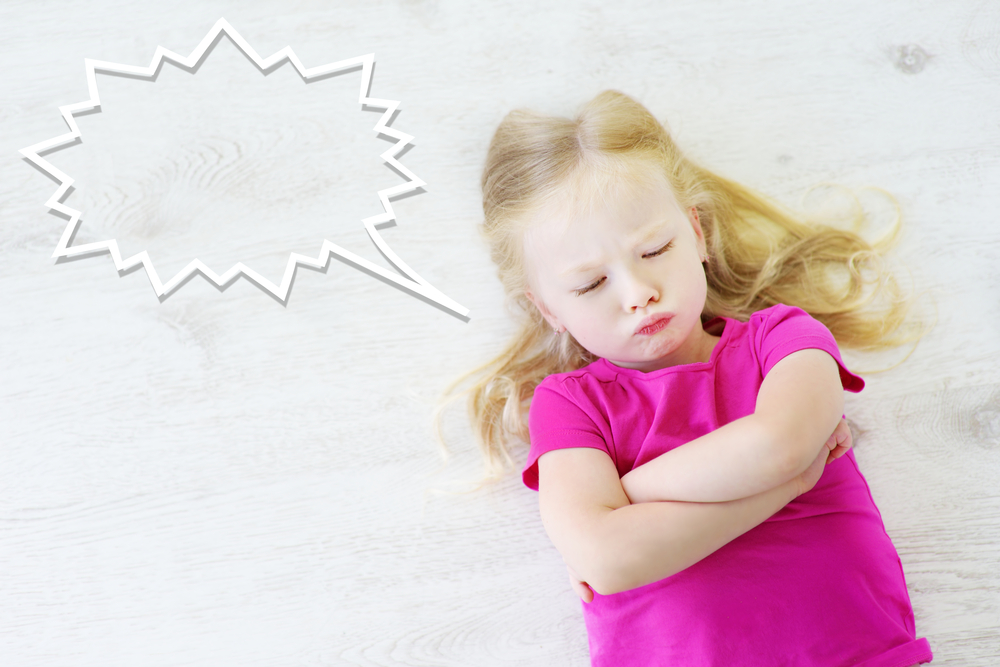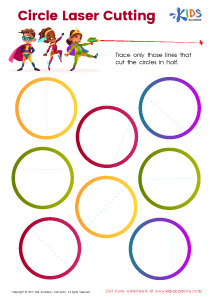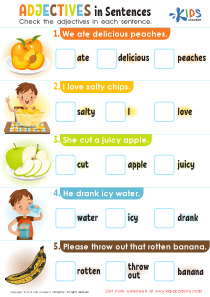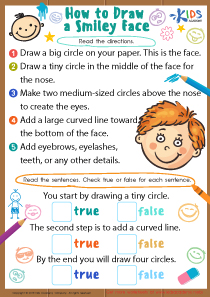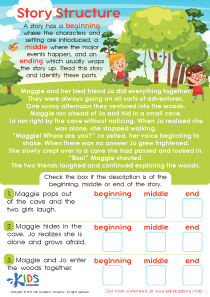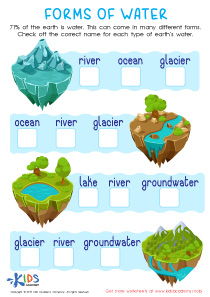Normal Matching worksheets activities for Grade 2
5 filtered results
-
From - To
Grade 2 Normal Matching Worksheets
Dive into our engaging collection of Normal Matching worksheets, specially designed for Grade 2 students! These activities are crafted to captivate and challenge young minds, fostering a deeper understanding and mastery of key concepts. Our worksheets are perfect for reinforcing learning, enhancing memory, and building foundational skills. Each sheet is filled with vibrant, thought-provoking activities that not only educate but also entertain. Ideal for classroom use or at-home practice, these Normal Matching worksheets are your go-to resource for making learning a joyful journey. Get ready to witness remarkable progress and enthusiasm in your Grade 2 learner's educational adventure!
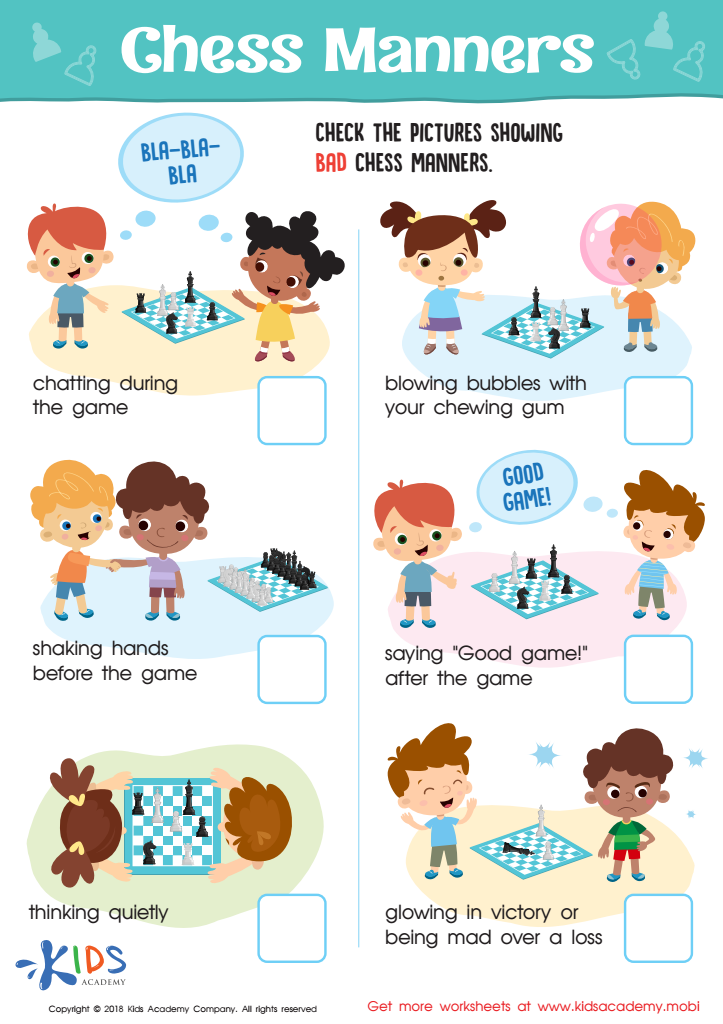

Chess Manners Worksheet
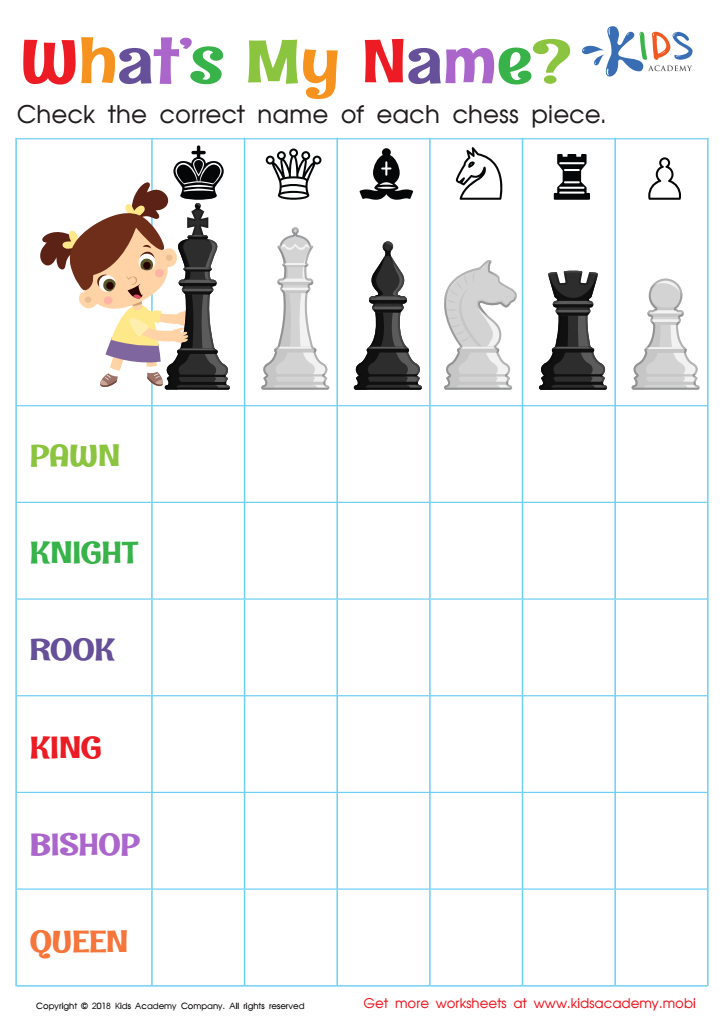

What's My Name? Worksheet
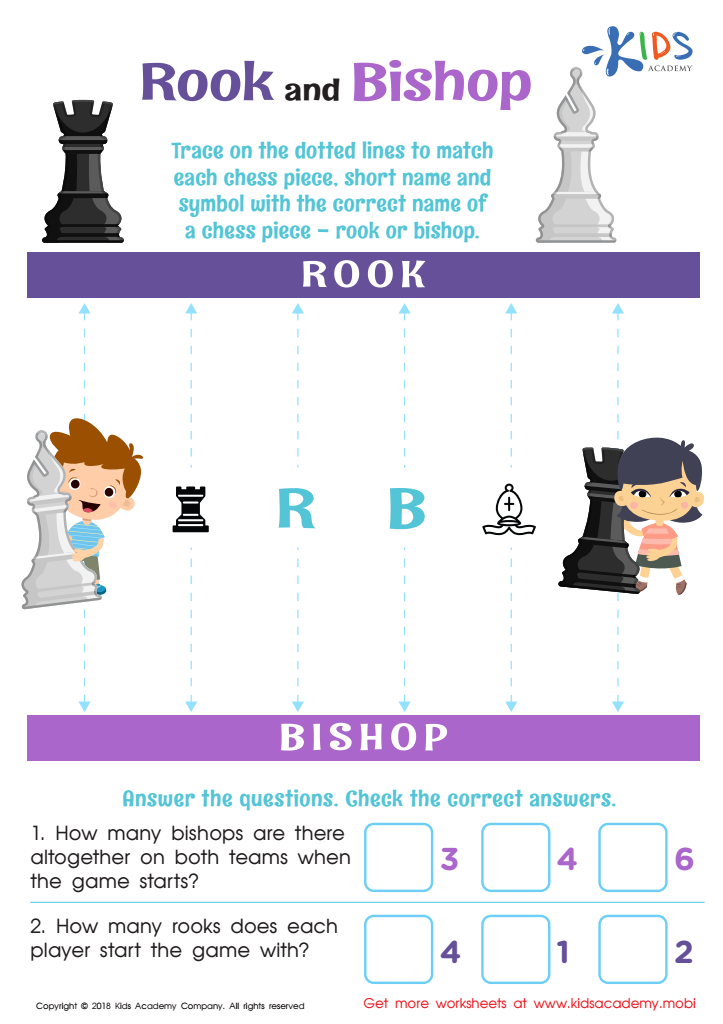

Rook and Bishop Worksheet


Logic Game Sorting Worksheet
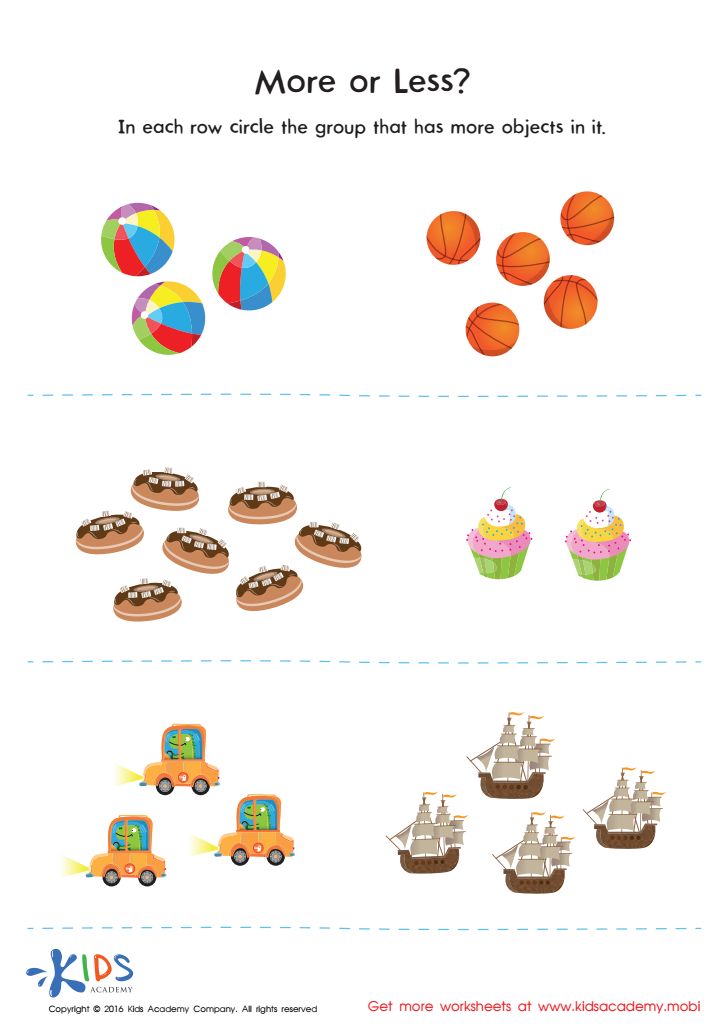

Normal Matching worksheets activities for Grade 2 offer a plethora of advantages in the developmental journey of young learners. These activities, meticulously designed for second graders, are not just another assignment but a powerful tool to enhance various skills in children. Let’s delve into why these matching exercises are so beneficial.
Firstly, Normal Matching worksheets activities for Grade 2 are instrumental in bolstering cognitive skills. Through the process of matching, children learn to recognize patterns, discern differences and similarities, and develop critical thinking and problem-solving skills. The act of finding pairs or correlating items based on specific criteria encourages children to think analytically, a skill that is invaluable both in academic settings and in everyday life.
Secondly, these activities are wonderfully effective in expanding vocabulary and improving language skills. As students match words to pictures or concepts to definitions, they not only reinforce their understanding of the words they already know but also get introduced to new vocabulary. This method of learning is interactive and far more engaging than rote memorization, making it easier for students to retain information.
Moreover, Normal Matching worksheets activities for Grade 2 enhance visual perception and memory. The task of looking for matches among a variety of options requires focus and attention to detail. Children learn to observe carefully, remember what they've seen, and recall that information to make matches. This practice is excellent for sharpening short-term and working memory, skills that are essential for academic success.
Furthermore, these activities cater to developing fine motor skills. The physical act of drawing lines to connect pairs or cutting and pasting matching items requires precision and coordination, thereby improving hand-eye coordination and dexterity.
Lastly, Normal Matching worksheets activities for Grade 2 are inclusive and adaptable. They can be tailored to suit children with different learning styles and abilities, making learning accessible and enjoyable for everyone.
In conclusion, matching worksheets are a versatile and valuable educational tool. They engage, challenge, and develop young minds in a fun and interactive way, laying a solid foundation for lifelong learning and cognitive development.
 Assign to My Students
Assign to My Students








